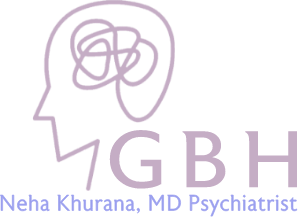ADHD Treatment and Therapy In Norcross, GA
Understanding ADHD & Behavioral Conditions
What is ADHD?
Attention-Deficit/Hyperactivity Disorder (ADHD) is a neurodevelopmental disorder that affects individuals of all ages, impacting focus, impulse control, organization, and executive functioning. People with ADHD may struggle with daily tasks, work or school performance, and personal relationships.
At Georgia Behavioral Health, our ADHD treatment and therapy specialists in Norcross, GA offer comprehensive evaluations, personalized ADHD therapy, and evidence-based treatment plans. Whether you’re seeking an ADHD doctor for diagnosis or ongoing support from an experienced ADHD therapist, we’re here to help you or your loved one build a more focused and balanced life.
Signs & Symptoms of ADHD
1. Inattention
- Difficulty sustaining attention in tasks or conversations
- Easily distracted by external stimuli
- Frequent forgetfulness and losing personal items
- Struggles with organization and following through on tasks
2. Hyperactivity
- Excessive fidgeting or difficulty staying seated
- Feeling constantly "on the go"
- Talking excessively and interrupting conversations
- Struggling with quiet, focused activities
3. Impulsivity
- Acting without thinking of the consequences
- Interrupting others frequently
- Difficulty waiting for turns in conversations or activities
- Making impulsive decisions
Types of ADHD
There are three primary types of ADHD, categorized by the most dominant ADHD symptoms:
- Predominantly Inattentive Presentation – Struggles with focus, organization, and following instructions.
- Predominantly Hyperactive-Impulsive Presentation – More physical restlessness, impulsivity, and difficulty remaining still.
- Combined Presentation – A mix of inattention, hyperactivity, and impulsivity symptoms.
ADHD in Children vs. Adults
ADHD in Children
- Difficulty following school instructions and completing homework
- Frequent daydreaming or being easily distracted
- Trouble making and keeping friends due to impulsivity
- Frequent fidgeting, talking, or restlessness
ADHD in Adults
- Struggles with work deadlines and organization
- Frequent forgetfulness or losing important items
- Difficulty maintaining relationships
- Procrastination and difficulty completing tasks
- Impulsive spending or decision-making
Causes & Risk Factors of ADHD
- Genetics: ADHD often runs in families.
- Brain Development: Differences in brain structure and neurotransmitter activity play a role.
- Environmental Factors: Exposure to toxins during pregnancy, premature birth, or low birth weight may contribute.
How We Treat ADHD at Georgia Behavioral Health
Our comprehensive ADHD treatment and tharapies approach includes:
1. Therapy & Behavioral Coaching
- Cognitive Behavioral Therapy (CBT): Helps develop focus, impulse control, and organization skills.
- Parent Training for ADHD: Teaches caregivers how to support their child’s unique needs.
- Executive Function Coaching: Provides practical strategies for organization, time management, and task completion.
- Social Skills Training: Helps individuals develop stronger communication and relationship skills.
2. Medication Management
For some individuals, medication can be a highly effective part of ADHD treatment. Our providers carefully evaluate and monitor patients to find the right balance, including:
- Stimulant Medications: to improve focus and impulse control.
- Non-Stimulant Medications: for those who cannot take stimulants.
3. Lifestyle & Holistic Support
- Mindfulness & Stress Management: Helps improve focus and emotional regulation.
- Dietary & Nutritional Support: Certain foods can support brain health.
- Exercise & Sleep Hygiene: Regular movement and sleep optimization can enhance focus and well-being.
FAQs About ADHD
How is ADHD diagnosed?
ADHD is diagnosed through clinical assessments, behavior rating scales, and evaluations by a mental health professional. At Georgia Behavioral Health, we conduct comprehensive ADHD assessments for children, teens, and adults.
Can ADHD be treated without medication?
Does ADHD only affect children?
What are the benefits of ADHD treatment?
How can parents support a child with ADHD?
- Establish structured routines
- Provide clear expectations and positive reinforcement
- Work with teachers and mental health professionals
- Encourage physical activity and creative outlets
- Be patient and supportive
